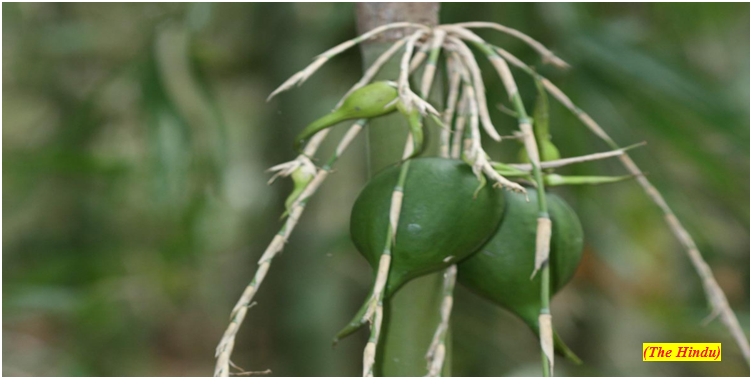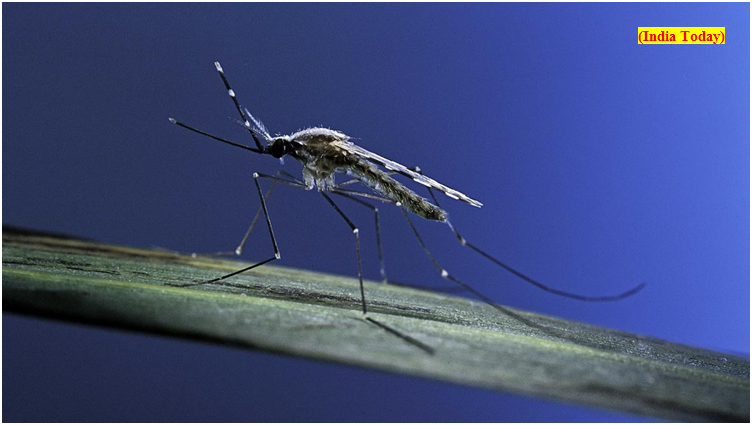Sweet, not protein, in bamboo fruits triggers rat boom (GS Paper 3, Environment)

Why in news?
- Recently, a study spanning 13 years has shed interesting light on flowering in Melocannabaccifera, a tropical bamboo species that has long fascinated researchers for its association with the occurrence of ‘bamboo death,’ ‘rat floods’ and famines in northeast India.
Melocannabaccifera:
- Called ‘Muli’ in northeast India, Melocannabaccifera is the largest fruit-producing bamboo and is native to the northeast India-Myanmar region.
- During its gregarious flowering, the bamboo produces large fruits which draw animal visitors/predators.
- Of these, black rats greatly relish the fleshy, berry-like fruit. During this period, they also multiply rapidly, a phenomenon dubbed as ‘rat flood.’ Once the fruits are gone, they start devouring standing crops, causing famines that have claimed thousands of human lives.
Key observations:
- The researchers detected a correlation between the sugar content in the fruit of Melocannabaccifera and the frenzied feeding and population boom in rats during ‘Mautam’, the cyclical, mass bamboo flowering that occurs once in 48 years.
- Earlier, it was presumed that ‘high protein in fruits/seeds’ was attracting the rats. However, a study found that the fruit actually contains very little protein. The predation is mainly due to the high content of sugar.
- They also reported the highest-ever fruit production in a bamboo clump (456.67 kg).
Way Forward:
- The flowering phenology and fruit production dynamics revealed through this study are helpful to foresters and people involved in the conservation of this bamboo.
- Further, the study on fruit chemistry and its links to predation and ‘rat flood’ could help identify biomolecules useful in medical research.
JNU researchers find new way to tackle malaria, re-purpose anti-hepatitis drug
(GS Paper 3, Science and Tech)
Why in news?
- Researchers at the Jawaharlal Nehru University (JNU), in a bid to tackle the drug-resistant strains of Malaria, have successfully re-positioned the anti-hepatitis C drug Alisporivir.
- The research could pave the way in developing better treatment strategies against vector-borne infection.
Malaria:
- Malaria is associated with a bite from the female Anopheles mosquito and in a few cases, can cause serious health complications.
- Parasites of the genus Plasmodium cause malaria.
- There are many species of the malaria parasite Plasmodium. However, only five of them infect humans. These include Plasmodium Falciparum, Plasmodium Vivax, Plasmodium Ovale, Plasmodium Malariae, and Plasmodium Knowlesi.

Focus on Alisporivir:
- Researchers focussed on Alisporivir, which is a non-immunosuppressive analogue of cyclosporin A, a well-known immunosuppressive agent for organ transplants. They have repurposed the drug to fight drug-resistant strains of malaria.
- Alisporivir showed potent antimalarial activity against chloroquine-resistant and artemisinin-resistant parasites and can be used in combination with artemisinin.
- They found that alisporivir exhibited anti-malarial activity and with the rational target-based re-purposing against malaria, it can be effective.
Significance:
- The research adds to the global pool of research being done in the field to fight vector-borne diseases.
- Research in Africa had also recently found a one-time dose of an experimental drug protected adults against malaria for at least six months.
Mosquirix:
- Malaria killed more than 6,20,000 people in 2020 and sickened 241 million, mainly children under 5 in Africa. The World Health Organization is rolling out the first authorized malaria vaccine for children, but it is about 30% effective and requires four doses.
- WHO had in 2021 recommended the world's first vaccine against malaria, Mosquirix, which acts against Plasmodium falciparum, the deadliest malaria parasite.
- It is the first vaccine against malaria, which has completed the clinical development process and received a positive scientific opinion from the regulatory body European Medicines Agency.
India wins Excellence in Leadership in Family Planning (EXCELL) Awards-2022
(GS Paper 1, Social Issues)
Why in news?
- In a significant development and recognition to the country’s efforts in improving access to modern family planning methods,India received the Leadership in Family Planning (EXCELL) Awards-2022.
- India is the only country to have received the award in the ‘country category’ at the International Conference on Family Planning held in Pattaya city, Thailand.
India’s achievement:
- India has made outstanding progress not only in improving access but also adoption of modern contraceptive methods enabling couples to make informed choices about family planning. These are reflected in the National Family Health Survey (NFHS) – 5 data.
- As per NFHS-5 data, overall Contraceptive Prevalence Rate (CPR) has increased substantially from 54 percent to 67 percent in the country, from NFHS-4.
- Similarly, unmet needs of family planning have witnessed a significant decline from 13 per cent to 9 per cent. The unmet need for spacing has also come down to less than 10 per cent.
- The total ‘demand satisfied’ for family planning among currently married women aged 15-49 in India increased from 66 percent in 2015-16 to 76 percent in 2019-21 which has already crossed the SDG target of 75 set globally for 2030.
 Awards-2022.png)
Significance:
- The government’s focus on improving easy and affordable access to modern contraceptives are reflected in the fact that 68% modern method contraceptive users obtain their method from the public health sector, as per NFHS-5 data.
- Mission Parivar Vikas, one of the government’s flagship programmes, to reduce unmet needs in family planning, has also been a critical factor in the overall improvement.
- India’s efforts in improving family planning demonstrate the progress the country is making towards achieving the SDG targets on women and maternal health.
About International Conference on Family Planning (ICFP):
- The International Conference on Family Planning (ICFP) has served as a strategic inflection point for the global reproductive health community, providing a global stage for more than 120 countries worldwide, organizations, and individuals to make important commitments and celebrate achievements as the world’s largest scientific conclave on family planning and reproductive health.




 Awards-2022.png)